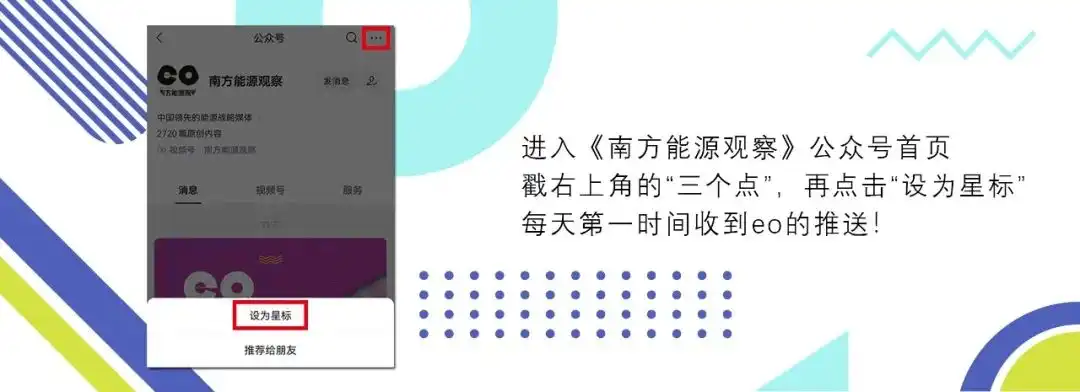Nuclear power is incorporated into green power:Catfish or chicken ribs?
全文1044字,阅读大约需要2分钟
Reproduction in any form without permission is strictly prohibited

Southern Energy Watch
micro-signal:energyobserver
Welcome to submit, submit email:

Han Xiaotong
Since 2024, the price of EU Guarantees of Origin (GOs) has been on a continuous downtrend due to oversupply.
GOs are also known in the industry as European “green certificates” and are used to prove 1 megawatt-hour of green energy. They also state what type of energy it is, when it was generated, and where it was generated. Similar to Chinese green certificates (GEC), GOs can be traded bundled with energy or unbundled and traded separately. They have become the main means of verifying renewable energy consumption in the EU.
An oversupply is the main reason for the declining prices of Guarantees of Origin (GOs), several European media outlets have analysed. In 2023, the EU added 56GW of solar power and 17GW of wind power, while weather conditions have been favourable for wind and hydropower, at the same time as electricity demand has decreased due to among other things slower economic growth – resulting in a bearish GO price development.
In November 2023, French GOs "spilled over" to nuclear power with zero GHG emissions. Qin Yan, chief analyst of the London Stock Exchange Group, believes that some market entities turned to purchasing nuclear power GOs with lower prices, which also pulled down the overall price of GOs.
In July 2023, the National Development and Reform Committee (NDRC), the Ministry of Finance (MOF), and the National Energy Administration jointly issued the Notice on Doing a Good Job in Implementing Renewable Green Power Certificates and Promoting Renewable Power Consumption (Reform Energy [2023] 1044). The notice proposed that all electricity produced by wind power, solar power, conventional hydropower, biomass power, geothermal power, and ocean energy projects in China that have been filed and approved should be issued green certificates, although nuclear power has not yet been "expanded".
During the 2024 National Two Sessions, Yang Changli, a member of the 14th National Committee of the Chinese People's Political Consultative Conference (CPPCC), Party Secretary, and Chairman of China General Nuclear Power Group (CGN), jointly submitted the "Proposal on Incorporating Nuclear Power into China's Green Electricity System" to the conference along with 13 other members of the CPPCC National Committee. Lu Tiezhong, a member of the CPPCC National Committee, Party Secretary, and Chairman of China National Nuclear Corporation (CNNC), also suggested that nuclear energy should be incorporated into the green and low-carbon policy system.
Discussions on whether nuclear power should be included in the green power trading system have been common in the industry in recent years. Proponents argue that nuclear power has carbon emissions over its entire life cycle that are similar to or even slightly lower than renewable energy. Opponents believe that the existing nuclear power consumption policy basically meets the guaranteed demand for nuclear power, and that the inclusion of nuclear power will affect the supply and demand situation and price of green certificates.
According to the Reply to the 7024th Proposal of the First Session of the 14th National People's Congress issued by the National Energy Administration website in August 2023, considering that domestic and foreign understandings on issuing green certificates for nuclear and natural gas-fired power generation, it will not issue green certificates for the time being.
According to the official website of the China Nuclear Energy Industry Association, the national nuclear power industry has accumulated approximately four trillion kilowatt-hours of electricity, of which 430 billion kilowatt-hours were generated in 2023, the equivalent of reducing approximately 320 million tons of carbon dioxide emissions that year.
Although nuclear power is not yet eligible for green certificates, it has been included in the energy conservation and carbon reduction policy system. In February 2024, the National Development and Reform Commission, the National Bureau of Statistics, and the National Energy Administration issued the "Notice on Strengthening the Linkage Between Green Electricity Certificates and Energy Conservation and Carbon Reduction Policies to Vigorously Promote the Consumption of Non-Fossil Energy" (Development and Reform Environment and Resources [2024] No. 113), proposing that in the "14th Five-Year Plan", the provincial government's energy conservation target responsibility evaluation and assessment will deduct the consumption of non-fossil energy, such as renewable energy and nuclear power, from each region's total energy consumption. Based on this, the energy intensity reduction target of each region will be calculated.
Nuclear power's emission reduction value is gradually being recognized. Given its lower emission reduction costs, if green certificates are expanded to include nuclear power in the future, will nuclear power become a "thorn in the side" of the green electricity market?
Editor Jiang Li
Audit Feng Jie
